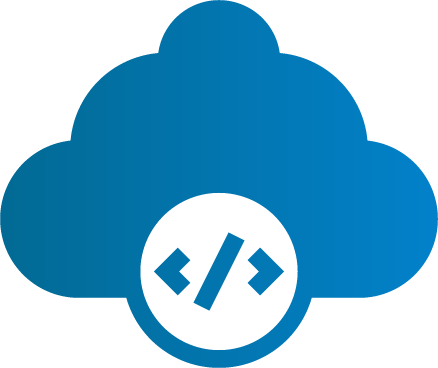In recent years, the insurance industry has undergone a significant transformation towards mobile app development, driven by the need to expand customer base, simplify processes, and enhance customer satisfaction. To meet these demands, insurance companies are turning to low-code platforms, such as Mendix, to accelerate development times, reduce costs, and improve collaboration between business and IT teams. In this article, we will explore the future of insurance app development and how low-code platforms like Mendix improve the operations of insurance companies.
Introduction
Insurance app development refers to the process of creating mobile applications that allow customers to manage their insurance policies, file claims, and access insurance services through their mobile devices. The rise of mobile devices and the internet has prompted insurance companies to develop mobile apps to provide convenient and personalized experiences for their customers.
Current State of Insurance App Development
Currently, insurance apps offer a range of features and functionalities to enhance customer engagement and streamline operations. These apps typically include policy management, claims filing, payment processing, and customer support features. However, insurance app developers face challenges such as high development costs, long development cycles, complex integrations, and limited resources.
The Future of Insurance App Development
The future of insurance app development lies in leveraging low-code platforms. Low-code platforms, such as Mendix, meet the need to accelerate development times, reduce costs, and improve collaboration between business and IT teams. These platforms provide a visual development environment that allows developers to create applications with minimal coding. By using pre-built components and drag-and-drop interfaces, low-code platforms enable faster app development and reduce the reliance on extensive coding.
Low-Code Platforms for Insurance App Development
Low-code platforms, such as Mendix, offer several benefits for insurance app development. These platforms provide an easy-to-use interface and a large library of ready-made, reusable components, expediting development timelines and alleviating the pressure of monitoring the development cycle. With low-code platforms, insurance companies can build apps faster than ever before, enabling them to stay competitive in the digital age.Other low-code platforms that are commonly used in insurance app development include OutSystems & Appian. Bonjoy is a solution provider that specializes in building low-code insurance apps for insurance companies using platforms like Mendix. They offer a range of solutions, including underwriter portals, quote and buy portals, and claim handling portals.
Benefits of Low-Code Platforms for Insurance App Development
Low-code platforms offer several benefits for insurance app development:
- Faster Development:
Low-code platforms enable rapid app development by providing pre-built components and visual development interfaces. This reduces the time required for coding and testing, allowing insurance companies to bring their apps to market faster. - Cost Savings:
With low-code platforms, insurance companies can reduce development costs by minimizing the need for extensive coding and development expertise. These platforms offer reusable components and integrations, further reducing development time and costs. - Easier Integrations:
Low-code platforms provide pre-built connectors and APIs, simplifying the integration of the app with existing systems and databases. This ensures smooth data flow between the app and other systems, enhancing operational efficiency. - Flexibility and Innovation:
Low-code platforms enable insurance companies to quickly prototype and iterate on app features. This fosters innovation and flexibility, allowing companies to adapt to changing customer needs and market trends.
Challenges of Low-Code Platforms for Insurance App Development
While low-code platforms offer numerous benefits, there are also some challenges to consider:
- Security Concerns:
As insurance apps handle sensitive customer data, robust security measures must be in place to protect against data breaches and cyber threats. Insurance companies must ensure that the low-code platform they choose has robust security features and follows industry best practices. - Integration with Legacy Systems:
Insurance companies often have existing systems and databases that need to be integrated with the new app. Ensuring seamless data flow and compatibility between the app and legacy systems can be complex and require careful planning. - Limited Customization Options:
While low-code platforms provide pre-built components, there may be limitations in terms of customization and flexibility. Insurance companies need to carefully evaluate the capabilities of the low-code platform to ensure it can meet their specific requirements.
Best Practices for Insurance App Development with Low-Code Platforms
To ensure successful insurance app development with low-code platforms, it is important to follow best practices:
- Define Clear Goals and Requirements:
Clearly define the objectives of the app and the specific features required to achieve those goals. This will help guide the development process and ensure the app meets the needs of both the insurance company and its customers. - Choose the Right Low-Code Platform:
Evaluate different low-code platforms, such as Mendix, OutSystems, Appian, and select one that aligns with the specific needs and requirements of the insurance company. Consider factors such as ease of use, available integrations, scalability, and security features. - Collaborate with IT and Business Teams:
Involve both IT and business teams throughout the development process. This collaboration ensures that the app meets the needs of both the insurance company and its customers. IT teams can provide technical expertise, while business teams can offer insights into customer requirements and preferences. - Prioritize User Experience and Security:
User experience and security should be top priorities in insurance app development. Design the app with a user-friendly interface, intuitive navigation, and robust security measures to protect customer data and ensure compliance with data protection regulations.
Conclusion
The future of insurance app development lies in leveraging low-code platforms like Mendix, OutSystems & Appian. These platforms offer numerous benefits, including faster development cycles, cost savings, easier integrations, and increased flexibility. By adopting best practices and leveraging the capabilities of low-code platforms, insurance companies can develop innovative and user-friendly apps that enhance customer engagement and streamline operations.
FAQs
- What is insurance app development?
- Insurance app development refers to the process of creating mobile applications that allow customers to manage their insurance policies, file claims, and access insurance services through their mobile devices.
- What are the benefits of low-code platforms for insurance app development?
- Low-code platforms offer several benefits, including faster development cycles, cost savings, easier integrations, and increased flexibility. These platforms enable insurance companies to develop apps faster, at a lower cost, and with easier integrations, allowing them to stay competitive in the digital age.
- What are some challenges of using low-code platforms for insurance app development?
- Challenges of using low-code platforms for insurance app development include security concerns, integration with legacy systems, and limited customization options. Insurance companies must ensure that the low-code platform they choose has robust security features and follows industry best practices. They also need to carefully evaluate the capabilities of the low-code platform to ensure it can meet their specific requirements.














